Emily Yu-Xuan Qin has a Master of Arts from the University of Calgary. She is a first-generation immigrant to Canada. As a child, she was sluggish in learning English—until she picked up her first Animorphs book. She can be found online at @EyxQin on X.
I had the opportunity to interview Emily, which you can read below.
First of all, welcome to Geeks OUT! Could you tell us a little about yourself?
Absolutely! I’m Emily Qin, the author of Aunt Tigress. I’m a first generation Chinese-Canadian living in Calgary. My personality is eighty-percent my dog, and I’m obsessively anxious about whether strangers like her or not. I’m also a board and video gamer, an otaku, and an enthusiastic traveler.
What can you tell us about your book, Aunt Tigress? What was the inspiration for this story?
The City of Calgary is the primary inspiration for Aunt Tigress, and this novel started as vignettes of a magical girlhood there: the frozen parks, the transient summers, and the towering Rocky Mountains with their secret springs and ponds. The protagonist didn’t even have a name back then. I wrote wistful little stories to capture a sense of the uncanny and displacement I felt growing up, sometimes spurred on by personal struggles and losses. After a while, when I felt like I knew the little girl from my vignettes intimately, I gave her a name and decided to write her a happy ending.
As a writer, what drew you to the art of storytelling, particularly speculative fiction?
I actually have no idea. I’ve always liked the idea of reality being a veneer papered over something more extraordinary–which probably makes me a prime target for cult brainwashing and pseudosciences, so I should try to be careful about that. In first grade, I gravitated to reading Chinese ghost stories and horror. That love eventually extended to fantasy and wuxia novels after I immigrated to Canada, and sci-fi and beyond in my adult years. It didn’t have to be writing at first; I actually imagined myself working with visual storytelling until early University. My creative writing classes there really taught me to fall in love with the English language, and here we are.
Aunt Tigress is said to be inspired by Chinese and First Nation mythology. Would you mind expanding on this?
At first, my conception of Aunt Tigress was a cozy serial with western supernatural staples. But as I started writing, it felt wrong to explore the mythological fabric of Canada without putting Indigenous cultures at the heart.
Calgary sits on the traditional land of several First Nations, most prominently the Blackfoot Confederacy. I was very nervous about whether I could treat Blackfoot characters and stories with respect. Ultimately, I decided on a few better-known Indigenous elements and, after months of research, used specific Siksika stories as easter eggs and to create one of the prominent side characters. I’m even more nervous now, after my amazing sensitivity reader and consultations with the local Elder Circle, because I’m better educated on how important this is. Still, I’d rather be criticized for doing it wrong than doing too little.
Aunt Tigress comes from a cautionary folktale, more popular in Taiwan than China, where it originated. She was already a child-eater, and my iteration of this myth takes on the nastier traits of a process from Chinese philosophy and Xianxia novels called cultivation–or the pursuit of self-improvement, power, and immortality. This clash of Tigress’s ruthless, desperate ambition with the supernatural beings already occupying the land forms the central conflict of the novel.
The mythos of Aunt Tigress is not rules-based. It is informed by the cultures I drew from: fragmented, intimate, whimsical, sometimes ludicrously delightful and imaginative. I really hope I was able to capture at least a small part of that in my novel.
Was there any media/music/etc. that inspired you in the process of writing Aunt Tigress?
Other than the inspirations of other fantasies, Chinese myths, and my mentors, I was most influenced by Japanese manga/anime like Natsume Yuujinchou (or Natsume’s Book of Friends) and Mushishi. I was moved by Natsume’s tone and themes of loneliness and yearning for connection and intrigued by the way Mushishi’s supernatural elements can be richer and more powerful when I don’t completely understand them.
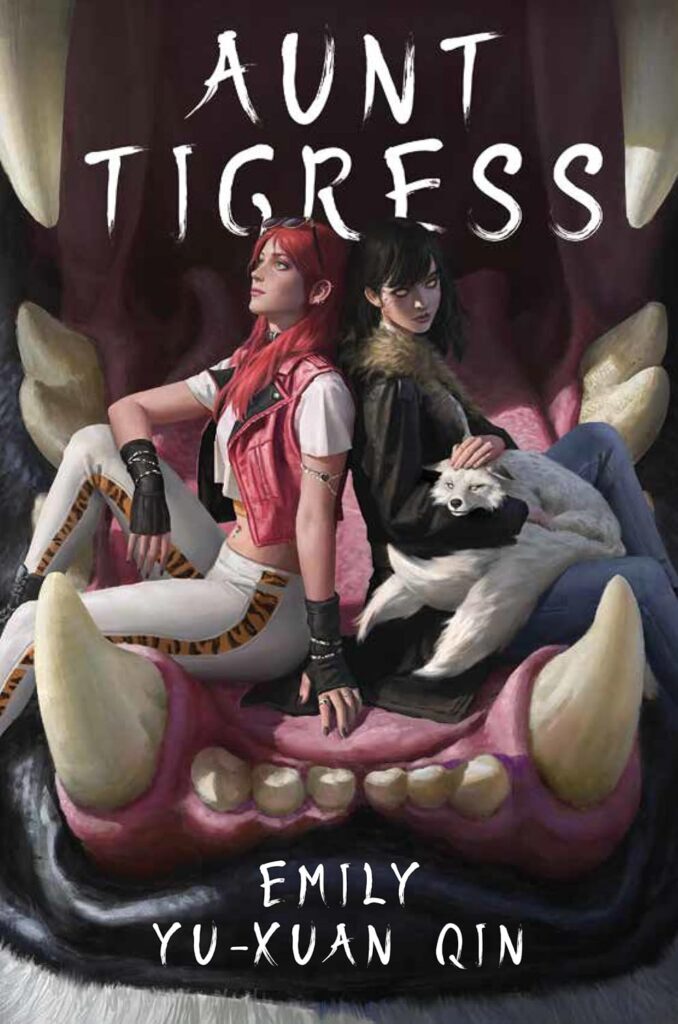
How would you describe your writing process?
Routine. I set aside a few hours each day and run through the list of what I’m able to do–write if I’m not stuck, edit if I am, and research and problem-solve if everything else seems hard. It often helps if I have a comfortable hour-long dog walk where I’m able to daydream and plot, but a reactive husky and Calgary’s cold winters complicate that. I usually work with two open documents: the main manuscript and a messy compilation of timeline, plot points, necessary edits, and cut content. I enjoy editing more than writing–the first few drafts of anything I produce tend to be careless and unreadable, and I’m reluctant to show them until at least three versions in.
What are some of your favorite elements of writing? What do you consider some of the most frustrating/challenging?
I love the art of word assembly into pleasing lines and structures and sounds. I enjoy coming up with practical solutions of how to solve narrative problems and achieve specific effects, usually as I edit. I also appreciate the opportunity to research, process, and inhabit different perspectives in stories.
I’m mostly frustrated by my own limitations in writing, because there are so many necessary scenes and elements and genres of novels I struggle with. For example, I struggle with dialogues and actions involving multiple characters. I’m perplexed by how to pass time organically between scenes. My vocabulary for sensory details and body language needs to be broader. Often, I’ll set out ambitious plans to tackle my shortcomings, sometimes to mixed results and copious rewrites.
Aside from your work, what are some things you would want others to know about you?
I’ve been lucky to have traveled throughout my life, and have visited every continent at least once. Some of my best lines and scenes come from traveling, but I don’t always find homes for them.
I went to uni for zoology and entomology, and studied for a summer in Ghana. My parents wanted a doctor in the family, but I wanted to work in research or conservation. I wanted to promote insect cultivation as a viable alternative industry to reduce the burden on the environment. In the end, I didn’t have the grit to tough out the pessimism around climate and conservation issues.
I’m also ace. I didn’t realize until I was until well into a relationship with my current partner, who’s one in a million.
What’s a question you haven’t been asked yet but that you wish you were asked (as well as the answer to that question)?
I definitely want to touch on my publication journey. It took me eight years and three manuscripts before Aunt Tigress was accepted for publication. DAW Books is one of the few publishers left that accept unsolicited manuscripts, and I’m so incredibly lucky that Betsy and Peter pulled my submission from DAW’s slush pile and Betsy helped introduce me to an incredible agent. I’ve been helped by so many, including my publicist and others at DAW, over the last year or so, and I need to take the opportunity to thank them.
What advice might you have to give for any aspiring writers?
There’s no one-size fits all advice, and no one approach to success. To very driven writers, who are determined to make it, I’d advise pragmatism and boundaries.
I’ve personally benefited from being very practical in my aspirations. I prioritized my personal finances, my relationships, personal growth, and my health. I fit my writing dream neatly next to other important things. I treated it like a job before it was. I didn’t just write when I was inspired. I worked hard on techniques and building knowledge. I wrote new manuscripts when previous ones didn’t succeed. I tried not to let rejection devalue me, or give up.
I hope every aspiring writer makes it the first time, but taking care of yourself enables you to make it to the hundredth time.
Are there any other projects you are working on and at liberty to speak about?
I just finished a readable draft of my second novel, and I’m both nervous and stoked to talk about it. It is a science fantasy set in a lush, jungled apocalypse where only pregnant women survived the cryogenic process. I experimented with a distinct narrative perspective and tried my hand at a detective story, which is new for me. The story revolves around a small hamlet that resorts to the unthinkable to survive. The WIP theme of the novel is, “What we’ve done to the others is grotesque. What we’ve done to our children is far worse.”
Finally, what books/authors (LGBTQ+ or otherwise) would you recommend to the readers of Geeks OUT?
Some of my earliest influences are renowned superpowers like Guy Gavriel Kay, Jeanette Winterson, and Ursula K. Le Guin, but they hardly need endorsement. Instead, I’d like to recommend the works of fellow Canadian authors Heather Osborne, D.M. Bryan, and Steven Peters. I’ve seen their manuscripts struggle and overcome, yielding some of the most unique stories and voices I’ve read in any literature. I’d also recommend Suzette Mayr, author of award-winning novels such as Monoceros and The Sleeping Car Porter. Aunt Tigress specifically draws influence from the works of Larissa Lai. Canadian fiction is distinct, often nuanced, sensitive, and breathtakingly lovely in their execution and exploration of difficult topics.

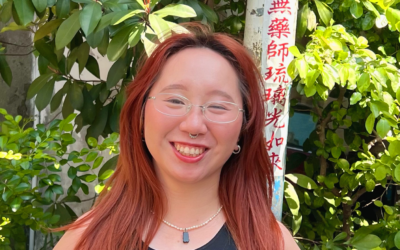
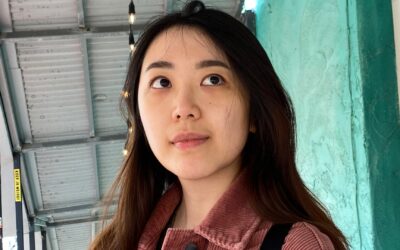
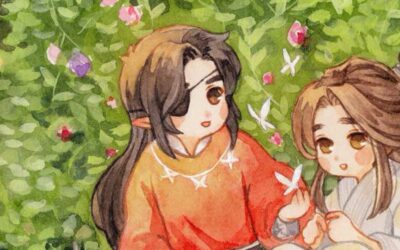
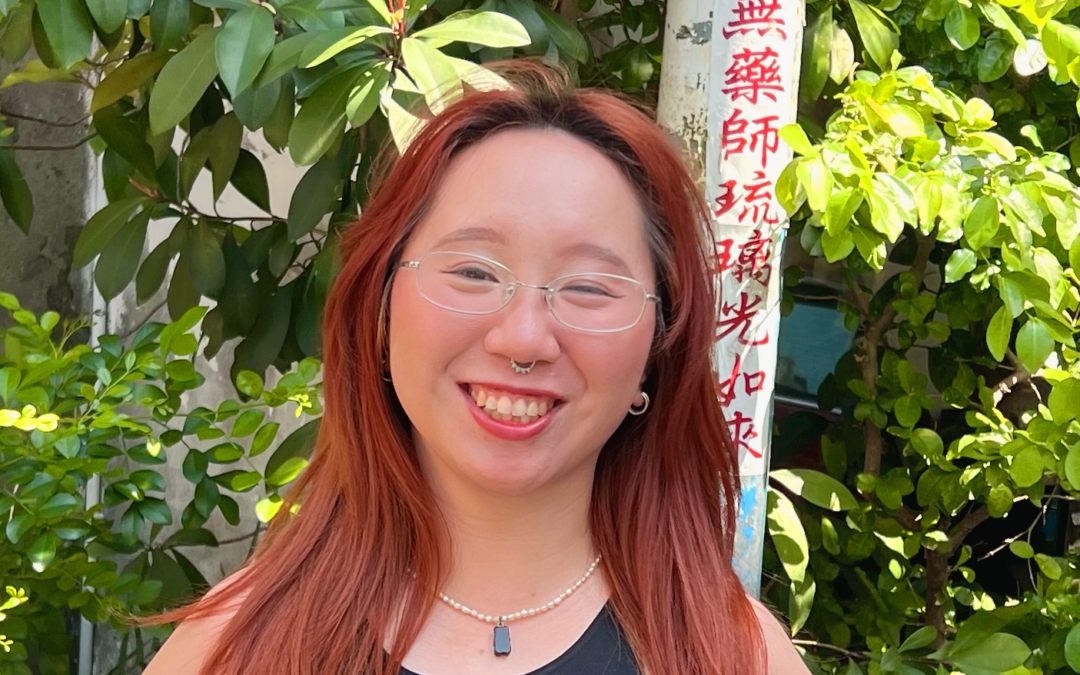
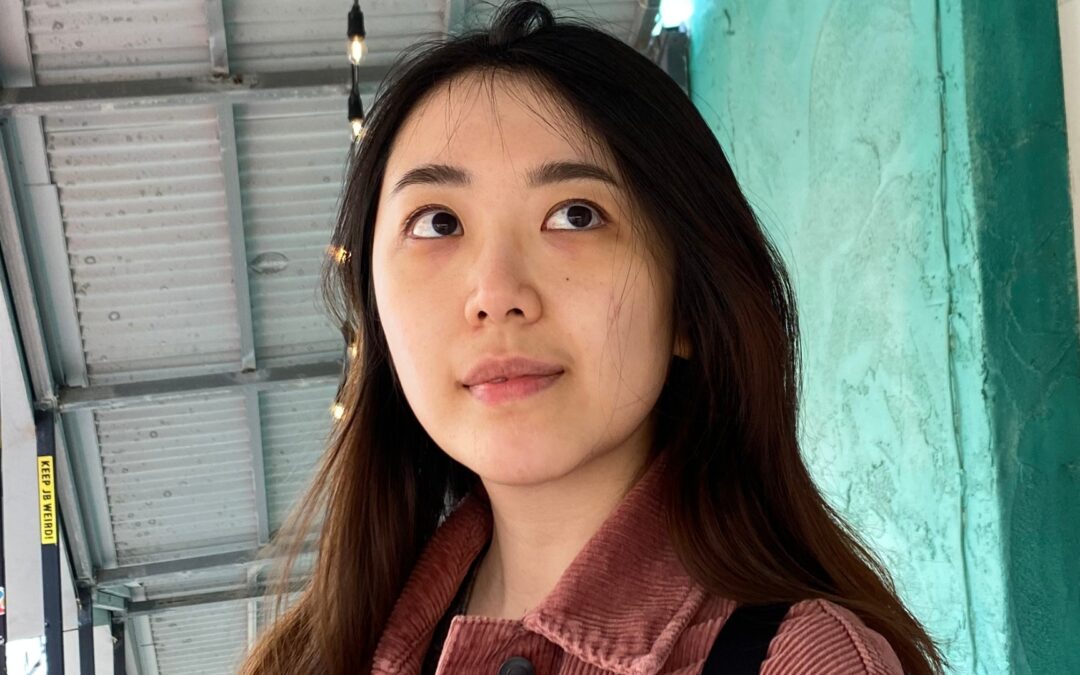
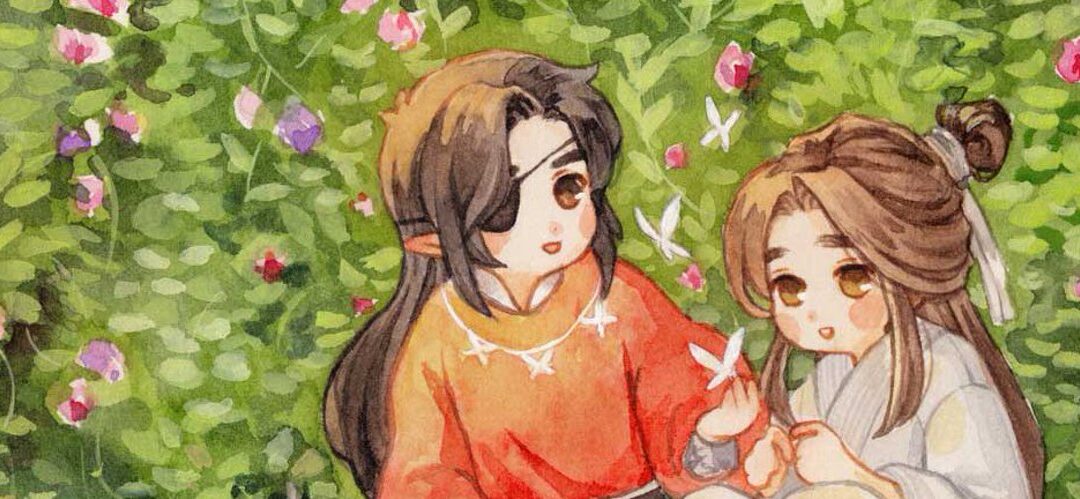
0 Comments